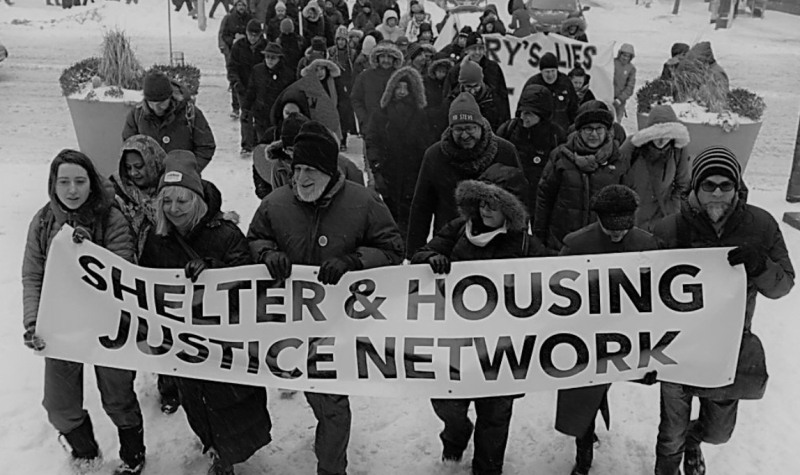Toronto’s Shelter and Housing Justice Network released a 60-page winter plan this week that aims to help move more people into short term housing immediately, as well as create housing for the long term.
The plan, which is available on the organization’s website, was sent to all 25 wards and the office of Toronto Mayor John Tory.
As the city government announces its plans for affordable housing later this month in a city council vote, the network wrote on its website that Tory and the city have failed to make adequate actions to address the city’s homelessness and affordable housing crisis, especially now as the months become colder.
With the shelter network already at a maximum capacity during the COVID-19 pandemic, the organization expects more individuals will seek help and refuge with winter approaching.
There are seven key demands outlined in the plan:
- Incorporate 2,250 permanent, non-congregate shelter bedsinto the system
- Repeal the ‘no camping’ bylaw – this was used to remove individuals from encampments in city parks during the summer months
- Extend shelter-hotel leases
- Increase the target of newly attributed housing allowances in 2021 from 1,440 to 3,000
- Freeze all evictions with the emergency powers of the Emergency Management and Civil Protection Act.
- Issue an inclement weather alert when necessary and open inclement weather sites during alerts
- Implement COVID-19 indoor air quality safety measures
The organization is also calling on the government to improve the quality and effectiveness of the shelter system. The document shows an increasing number of death, overdoses (fatal and non-fatal) and reported acts of violence since 2007.
In terms of groups, the plan reports that their data shows groups disproportionately homeless are Indigenous, BIPOC, 2SLGBTQ, women, disabled and refugees.
The network held a memorial for homeless individuals who passed away and to address its demands to the all levels of government on providing affordable housing. The memorial was held outside the Church of the Holy Trinity.
Prior to the plan’s publication, the organization discussed its contents with community advocates and researchers, according to its website statement.
Listen to the CJRU news update here:


